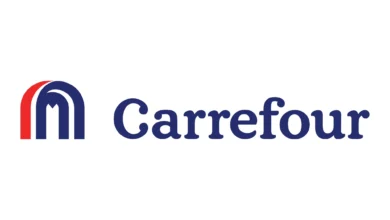Wimbart, a communications consultancy specializing in Africa’s business and technology sectors, has released its second annual report, “Startup Performance Reporting in Africa: Aligning Startup and Investor Expectations.” This comprehensive report explores the dynamics between investors and startups across Africa, revealing challenges in communication, shifts in reporting practices, and opportunities for collaboration to enhance the ecosystem. With a backdrop of economic uncertainty and declining investments, the report dives deep into how better communication can improve investor confidence and enable founders to access essential resources.
Africa’s Funding Landscape and the Rising Importance of Communication
African startups are navigating a difficult period. According to Partech Africa, funding dropped sharply from $6.5 billion in 2022 to $3.5 billion in 2023—a 46% decline. The first half of 2024 brought even more challenges, with only $780 million raised, marking the slowest funding period since 2020. Amid shrinking capital flows, inflationary pressures, and market volatility, startups are finding it harder to survive.
The reduced funding has prompted investors to increase scrutiny on their portfolio companies, focusing more on sustainability and transparency. In this environment, maintaining consistent and detailed communication with investors is not optional but essential for startups seeking additional support and follow-on investments.
Investor Priorities Shift: From Financials to Sustainability
The report highlights a shift in investors’ priorities. In 2023, financial reporting was their primary focus. However, in 2024, 29.4 percent of investors identified sustainability metrics as their top priority, reflecting a growing emphasis on environmental, social, and governance (ESG) factors. This change aligns with the rise of climate-focused funding across the continent, with large institutional investors and limited partners favoring sustainable business models.
Despite these shifts, a significant disconnect remains between what startups report and what investors value. About 40 percent of founders feel that their investors do not fully understand their sectors or metrics, reducing the perceived value of their reporting efforts. This gap creates friction, as investors struggle to make informed decisions, while founders feel unsupported.
Increased Reporting Requirements: Impact and Changing Cadence
Amid the economic slowdown, 72 percent of investors have intensified their reporting requirements over the past 18 months. This intensification reflects concerns about the financial health and sustainability of startups, the need for greater transparency, and the volatility of African markets. However, the cadence of these reports has shifted.
Monthly reports, once the norm for 64.7 percent of investors in 2023, dropped to just 27.8 percent in 2024. In contrast, quarterly updates increased to 50 percent, reflecting a balance between detailed reporting and operational efficiency. Investors emphasized that the quality of a startup’s reporting plays a critical role in assessing leadership capabilities, with 88.9 percent indicating that reporting is their primary metric for evaluating founders.
Challenges in Reporting: A Disconnect Between Investors and Founders
The report identifies several challenges in investor-startup communication, highlighting a lack of standardization and clarity in reporting expectations. While 83 percent of investors believe they have clearly communicated their requirements, only 66.7 percent of founders agree. This misalignment has resulted in frustrations for both parties. Founders often struggle with complex templates, while investors cite a lack of focus in the reports they receive.
Additionally, 12 percent of founders mentioned confidentiality concerns as a key barrier to providing updates, reflecting the interconnected nature of Africa’s startup ecosystem. Founders worry about sensitive information being mishandled, further complicating efforts to maintain transparent communication.
The Positive Impact of Reporting on Startup Success
Despite the challenges, the report also highlights the positive impact of regular communication. Among startups that met reporting expectations, 61 percent reported receiving direct support from investors. This assistance came in various forms, including funding, mentorship, and operational support.
The report emphasizes that startups need to avoid vanity metrics and focus on meaningful indicators like customer acquisition cost, lifetime value, and customer retention rates. These metrics help investors understand the business better, paving the way for effective collaboration.
Proposed Solutions: Standardization and Open Communication
Recommendations for Investors
The report calls on investors to take the lead in improving communication by:
- Providing clear reporting templates to reduce complexity for startups.
- Engaging proactively through feedback and sector-specific insights.
- Familiarizing themselves with the industries of their portfolio companies to interpret data correctly.
Recommendations for Startups
Founders are encouraged to:
- Embed reporting practices early to establish a seamless reporting process.
- Maintain transparency by sharing both successes and challenges.
- Advocate for standardized reporting templates to streamline the process.
The Role of Local Investors and Collaborative Partnerships
Local investors, such as those from Ventures Platform, play a critical role in bridging the gap between founders and foreign capital. According to Kola Aina, Founding Partner at Ventures Platform, the advantage of local investors lies in their market proximity, enabling them to offer hands-on support without excessive interference. Regular dialogue, mentorship, and a focus on strategic alignment are essential to building mutual trust.
Similarly, Anna Ekeledo, Executive Director at AfriLabs, emphasized the need for standardized reporting frameworks across the ecosystem. Standardization will address founders’ concerns and help investors make informed decisions, fostering transparency and trust.
Building Trust Through Open Communication
The report concludes that trust and transparency are the cornerstones of effective investor-startup relationships. In an increasingly difficult funding environment, startups cannot afford to overlook regular, transparent communication with their investors. Clear and consistent reporting not only helps founders secure funding but also enables investors to provide critical support when needed.
The report recommends that both parties keep communication lines open beyond written reports, using calls, meetings, and informal check-ins to add context to the data shared. By fostering a culture of openness, startups and investors can align their goals, building stronger partnerships that drive growth and resilience.
Conclusion: Adapting to the Future of African Tech
Wimbart’s 2024 report offers essential insights into the evolving relationship between African startups and investors. As funding tightens, the importance of reporting and communication has become more pronounced. Both startups and investors must adopt more transparent and collaborative practices to navigate the challenges ahead. With clearer expectations, better reporting structures, and mutual trust, Africa’s tech ecosystem can continue to grow despite economic challenges. Wimbart’s report highlights that while there are gaps to address, improved communication can unlock the full potential of these partnerships, ensuring startups receive the support they need to scale sustainably in today’s dynamic market environment.






